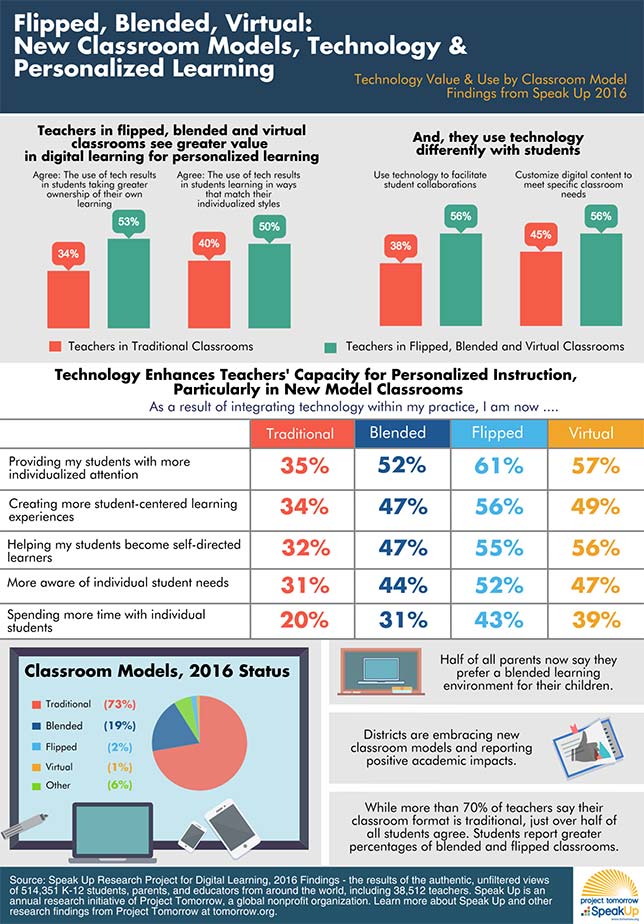Teachers in Non-Traditional Classrooms Value Digital Tools for Personalized Learning
Teachers in flipped, blended and virtual classrooms see greater value in digital learning tools than their counterparts in traditional classrooms — in particular for personalized learning.
According to a new report released by Project Tomorrow, more educators in non-traditional classrooms indicated that, thanks to technology, "they are now providing students with more individualized attention, creating more student-centered learning experiences, helping my students become self-directed learners," and 53 percent said the use of tech "results in students taking greater ownership of their own learning," compared with about a third of educators in traditional classrooms.
The data were released as part of a Congressional briefing by Project Tomorrow, compiled from information collected for the 2016 Speak Up Research Project for Digital Learning, which included input from more than 500,000 K-12 students, teachers, administrators and parents. (Registration for the 2017 Speak Up Survey is open now; input will be collected from Oct. 16, 2017 to Jan. 19, 2018.)
"The opportunities technology presents to transform learning have yet to be fully explored and implemented in classrooms across the country," said Julie Evans, CEO of Project Tomorrow, in a statement released to coincide with the report. "Speak Up data continues to show evidence of external indicators of change, but also indicate the lack of real systematic changes in activities, attitudes or aspirations of teachers. Those teaching in new classroom models — flipped, blended and virtual — are pointing the way for how technology can actually change teaching and learning."

Further information can be found at tomorrow.org/speakup.